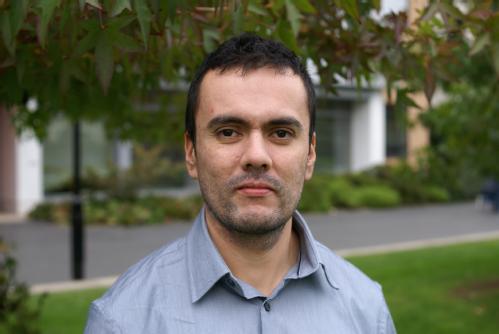Applied Computing News
How to tell if a tweet is telling the truth
How to tell if a tweet is telling the truth, The Times, Pages 1-2, 19 February, 2014.
Information we find through social media cannot always be trusted. A study of social media during the Boston bombing of 2013 concluded that 29% of the most viral content were rumours. This is clearly a major problem and, given the volume – Twitter users send 500 million tweets per day – requires the use of automated techniques to solve it. Research has already identified a number of tell-tale features in the digital ‘signatures’ of social media postings and the sources that produce them that are correlated with trustworthiness. These include posting history and connections with other social media users. The Pheme project, a new £3.5M European Union funded research project involving Computer Scientists from the University of Warwick, will build on this research and will also develop ways to analyse topics in postings, their consistency with other sources and distinguish the different ways in which social media users respond to them.
By combining these different approaches, Pheme will create computer tools with improved ability to discriminate between trustworthy and untrustworthy sources and with the capacity to process the large volumes of information circulating in social media daily. These tools will be made widely available for news media, government agencies and community organisations to use. By providing the means to amplify natural self-correction mechanisms in human communication, Pheme will help people to be more confident in assessing the veracity of information they find in social media.
See: http://www.thetimes.co.uk/tto/technology/internet/article4009691.ece
Rob Procter is Professor of Social Informatics in the Department of Computer Science, University of Warwick. He led a multidisciplinary team to work with the Guardian/LSE on the ‘Reading the Riots’ project, analysing tweets sent during the August 2011 riots. This work won the Data Visualization and Storytelling – National/International category of the inaugural Data Journalism Awards sponsored by Google, the 2012 Online Media Award for the ‘Best use of Social Media’. He is a founder member of the Collaborative Online Social Media Observatory (Cosmos), a multidisciplinary group of researchers in England, Scotland and Wales that is building a platform for social media analytics.
Dr Victor Sanchez awarded Marie Curie Grant
Dr Victor Sanchez, Assistant Professor in the Department of Computer Science, has been awarded a Marie Curie Career Integration Grant from the Research Executive Agency of the EU to fund his research for the next four years. The Integration Grants assist researchers in integrating themselves in the EU with their own research budget. For the first call of 2013, more than 800 proposals from around the EU were submitted of which 22% received funding. Dr Sanchez research will focus on developing methods for storing and manipulating whole-slide images of pathology specimens, which are multi-gigapixel colour images of over 80k × 80k pixel resolutions. He will work in collaboration with the Computational Biology and Bioimaging (COMBI) group, and researchers from Universitat Autonoma de Barcelona and University of Arizona.
DCS academic wins international grant for research on cancer prognostics
A consortium of four academic and clinical institutes has won an international grant for a research project on novel multiplex prognostic biomarkers for colorectal cancer via computerised analysis of multi-protein fluorescence images. The research project led by Dr Nasir Rajpoot has been awarded the total amount of $1.05m by the Qatar Foundation. The consortium involves academic and clinical partners based in the UK and Qatar. The research team at Warwick will be composed of two new researchers and key investigators from four departments across the campus in Dr Nasir Rajpoot (Computer Science), Dr Mike Khan (Life Sciences), Prof David Epstein (Mathematics), and Dr Rich Savage (Systems Biology).

